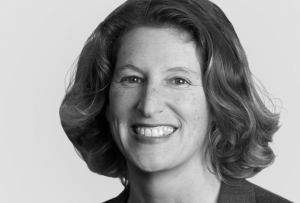
New York Can’t Allow Its Prisons to Become Nursing Homes

Prisons across the country have become nursing homes for older people, and people are paying the price with their lives and their dignity. The dramatic growth in the aging prison population is brought on by decades of “tough-on-crime” sentencing and extraordinarily low parole release rates, both of which are plagued with racial bias. As a doctor and researcher who specializes in geriatric and hospice medicine for people in prison, I am alarmed at the increasing number of older people behind bars. Failure to urgently intervene will result in a costly ethical and public health crisis in prisons with rising numbers of incarcerated people who are too cognitively impaired to be aware that they are being punished, too ill to participate in rehabilitation, and too physically compromised to pose a risk to public safety.
New York has seen an enormous increase in the State prison system’s older adult population. In many states, incarcerated people are deemed “older” when they reach 55, and while this age may appear relatively young outside of prison walls, that is far from the case behind bars. An average 55 year old who is incarcerated is bound to have the same health and physical problems expected in a non-incarcerated person who is 65 or 70. This “accelerated aging” is due in part to poor nutrition and inadequate access to healthcare both before and during prison, alongside the tremendous stress associated with aging in a carceral setting. The vast majority of our prisons were never built to house elderly people, who have the lowest recidivism rates of any age group, and it is far past time we do what is necessary to create a pathway for our elders to come home. Parole reform could do just that.
The COVID-19 pandemic profoundly exacerbated the already high levels of comorbidities that people in prison experience. Forty-four percent of people in prison already have chronic conditions, and this jumps to 72% for people over the age of 50. The significant health concerns people behind bars face come at an extraordinarily high cost to taxpayers. New York spends about two to four times as much to incarcerate an older person when compared to a younger person, or roughly $100,000 to $240,000 vs. $60,000. These costs will continue to substantially rise as evidence suggests that long-term consequences of COVID-19 infection include high rates of persistent symptoms and organ dysfunction.
Right now, New York lawmakers are considering critical bills that would expand parole eligibility for older New Yorkers in prison. The passage of Elder Parole (S.15A) would give older adults who have served at least 15 years of their sentence the opportunity to go before the parole board for a hearing. If passed, nearly 2,000 older New Yorkers would be eligible for a parole board evaluation by 2030, and be given the opportunity to be evaluated for a chance to spend their last years with their families and in their communities. The Elder Parole Bill will only be effective in expanding meaningful opportunities for release if the Fair and Timely Parole Act (S.1415) is also passed, which would transform the parole process to focus on an individual’s growth and not just their conviction. In addition, it is imperative that we have geriatricians and gerontologists who specialize in aging available during Parole Board deliberations to answer questions about health. We must also provide training to Parole Board commissioners on the ramifications of aging and serious illness so that they are making informed, evidence-based decisions during hearings.
Our current system denies far too many an opportunity for hope and redemption and instead subjects them to a death sentence by another name. New York’s leaders have a chance during this legislative session to give elders more appropriate care, reunite them with their families, and reinvest in our communities. It’s time to give New York’s incarcerated elders a meaningful chance to come home. Their lives, and our moral conscience, depend on it.
Brie Williams, MD, MS is a physician and Professor of Medicine in the UCSF Division of Geriatrics. Dr. Williams leads Amend at UCSF a public health and human rights program that aims to reduce the debilitating health effects of US prisons on residents and staff, while joining policy makers and community leaders who demand a transformed, dignity-conserving approach to interpersonal harm and accountability that prioritizes health and human rights. Title for identification purposes only, does not necessarily imply policy support by the University of California.
sponsored content
